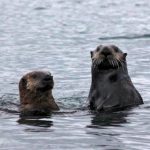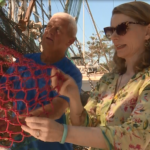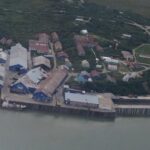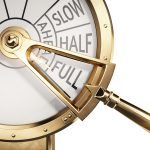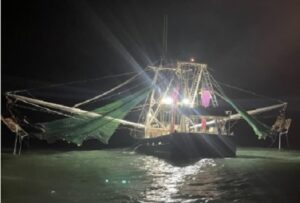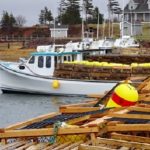Monthly Archives: March 2018
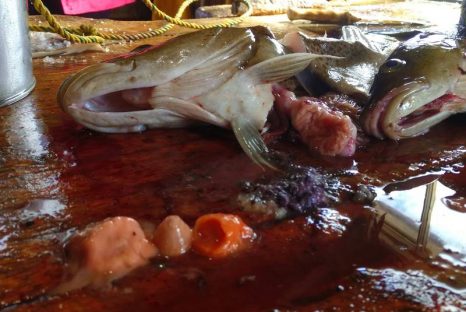
Cod facing ‘natural mortality’ or starvation?
Now that DFO has announced that the cod stocks have declined due to “natural mortality” — a nice way of saying no one is responsible — I take the liberty of posting a few shots I took in 2017 to show what I call starving cod and the contents of their stomachs. Related story: Northern cod stock declined over last year; scientists urge minimum fishing effort >click to read< Not sure of other people’s experiences last year, but this is typical of the cod I caught. I can only speak for myself. See the sea anemones and the blackberry (zooplankton) in one photo and I was surprised to find nothing but a welk in another cod. David Boyd >click to read<22:21

Proposed Magnuson Stevens changes are reasonable – Support HR-200
“Things bad begun make strong themselves by ill” Macbeth,Act III, Scene II I am wondering how much commercial fishermen know about acting? At a guess I’d say probably as much, or as little, as most actors know about commercial fishing, even award winning ones. This thought arose following the recent appearance in these pages of an opinion piece>click to read Rep Keating, defend the Magnuson Act< on fishery management by a member of the acting profession in an attempt to wield political influence. The thespian in question is also an Ocean board member, a well funded environmental group antithetical to America’s oldest industry. By Don Cuddy, >click to read< 19:35
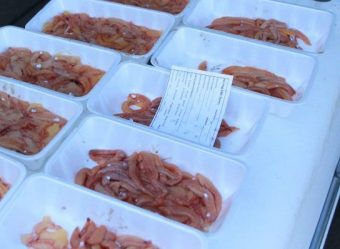
With Sitka herring too small and too few, many seiners head home
Though the Sitka sac roe herring fishery has been on standby since March 20th, they’ve only caught a quarter of the quota. Many boats have left town in a fishery that was non-competitive this year and appears to be petering out. The Alaska Department of Fish and Game will continue to survey for harvestable schools this weekend. Their research vessel, the R/V Kestrel, has returned to Petersburg. >click to read<14:56
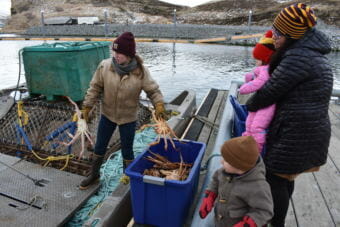
Finding local seafood is getting easier at America’s top fishing port, if you’re imagining a fish market, wipe away that image.
Unalaska is America’s fish capital. More seafood is hauled into Dutch Harbor than anywhere in the country, but for residents it’s not easy to find fresh fish unless they catch it themselves. At the local grocery stores even seafood caught in the Aleutians is exported before landing in freezer cases. But it’s getting a little easier to get locally caught seafood on the dinner table. It doesn’t happen often in Unalaska, but fishermen can sell their catch directly to customers. If you’re imagining a fish market, wipe away that image. Buying fresh seafood means going directly to a boat like Roger Rowland’s. >click to read< 14:13
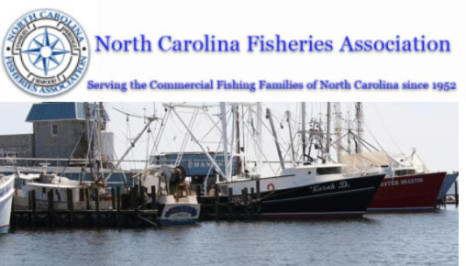
North Carolina Fisheries Association Weekly Update for March 29, 2018
>Click here to read the Weekly Update<, to read all the updates >Click here<, for older updates listed as NCFA >click here< 13:51
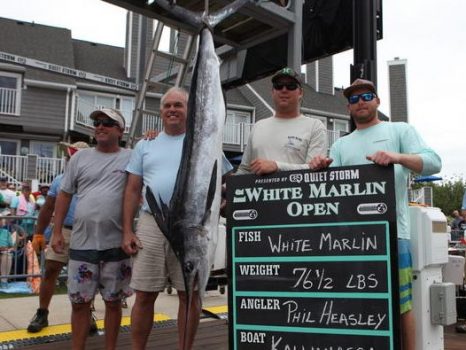
Fishermen’s incredible $2.8 million catch that got away
In the 2016 White Marlin Open, touted as the world’s largest billfish tournament, angler Phil Heasley and his team aboard the Kallianassa out of Naples, Fla., boated the only qualifying white marlin and netted a tournament-record $2.8 million. Or thought they did. This week they learned otherwise. The catch of a 76.5-pound white marlin was subsequently called into question when Heasley and his teammates were deemed deceptive during polygraph examinations, which are required of teams winning $50,00 or more. At issue was the time in which the team aboard Kallianassa dropped lines into the water,,, >click to read<12:41
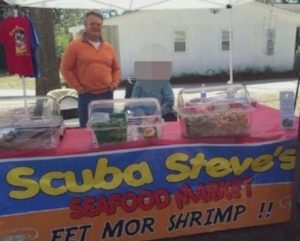
Prominent Shrimper found guilty of federal charges
A Tybee Island shrimper and member of a prominent local family was convicted by a federal jury on multiple counts of false statements, mail fraud and money laundering. Michael Brian Anderson, who’s family owns of Scuba Steve’s Seafood on Highway 80, submitted multiple false claims saying he was losing thousands of dollars in his shrimping business. Investigators say Anderson wanted federal money to deal with his losses and cheated the government out of over $800,000. According to the U.S. Department of Justice (DOJ), Anderson claimed to Customs & Border Protection his shrimping business expenses for 2005 to 2007 were more than $24 million. >click to read<11:56
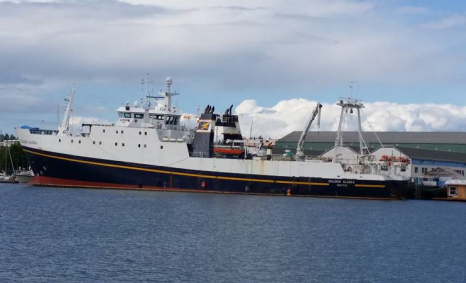
Third Medevac in Three Months for F/V Golden Alaska
On Thursday, a U.S. Coast Guard MH-65 helicopter from the cutter Stratton medevaced a 59-year-old crewmember from the factory trawler Golden Alaska about 35 nm northwest of Cold Bay, a small fishing port in the Aleutian Islands. The individual was reportedly suffering from inhalation of unknown chemicals. Weather on scene was favorable, with calm seas and light airs. The aircrew safely hoisted the man aboard from the Alaska’s bow and brought him to Cold Bay, where he was transferred onto a LifeMed aircraft ambulance and flown to Anchorage. >click to read<10:16
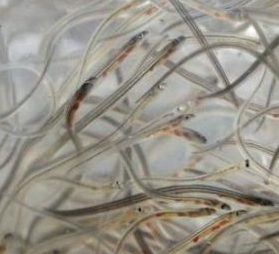
Elver prices soar to new heights amid shortage, Asian demand, state expects a strong year.
The price of baby eels in Maine is soaring to record highs at the start of a season in which buyers expect to pay more for the valuable fish.,, Fishermen in Maine, which has the only significant elver fishery in the U.S., are poised for high prices this year because of a poor harvest in Asia. The early part of Maine’s season has been held back somewhat by bad weather, but harvesters are looking forward to a good year, said Darrell Young, co-director of the Maine Elver Fishermen Association. >click to read< 09:55
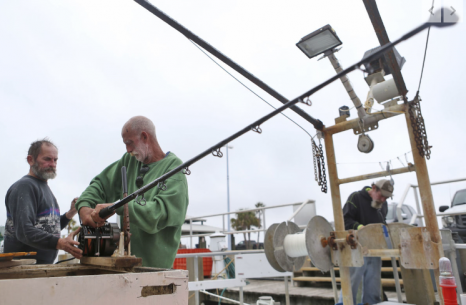
Spend a day in the life of a Florida tuna fisherman
A white scar carved across Carl Roby’s hand tells the story of the time a tuna, a creature he has spent decades harvesting, almost won. It was late. He and his crew were pulling in the miles’ worth of line they strung out earlier that day with hundreds of hooks. It’s methodical work, pulling the line in hand-over-hand and raveling it back onto the spools. The bright spot is when a yellowfin tuna, sleek, strong and worth hundreds, glimmers just under the water. Roby had been fishing for decades at this point. He started as a teenager in the 1970s,,>click to read<21:43
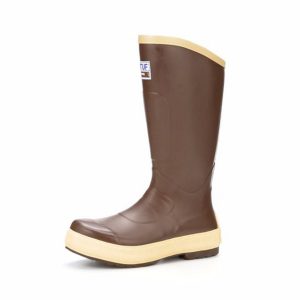
Iconic in Alaska, classic Xtratuf boot gets a redesign
Xtratuf has launched a redesigned version of the classic dirt-brown Legacy boot that overwhelmingly outfits sport and commercial fishermen throughout Alaska. Purists needn’t fear, said Bo Thai, associate project manager for Xtratuf. The traditional Legacy will remain in the brand’s line for those who think the boot is fine just the way it’s always been. To eliminate this classic boot would be foolhardy, he added, as it still represents the majority of the company’s sales. Still, the company now has the technology to create a better product,,, >click to read<20:44
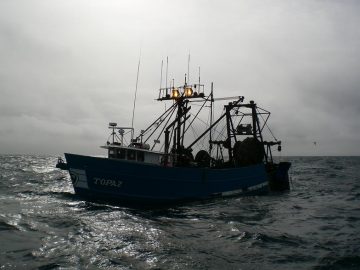
Kodiak Island Borough Assembly support changes to Chinook by-catch limits
King salmon are causing some trouble for Kodiak’s trawl fleet. The problem, too many are being caught as by-catch. The North Pacific Fishery Management Council is currently looking at changing the Chinook prohibited species caps for the Gulf of Alaska for non-pollock catcher vessels in the trawl sector. The purpose of the adjustment would be to reduce the risk of fishery closures. If too many kings are caught in certain commercial fisheries, they’ll be shut down. In 2015, the Pacific cod and flatfish trawl fishery were closed because of this and it cost Kodiak millions >click to read<17:54
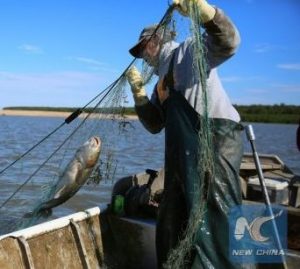
Carp Conundrum: Too Many Fish, Not Enough Fishermen
Two Rivers Fisheries in west Kentucky has more than doubled its Asian carp processing since it opened in 2013. Employees at the Wickliffe fishery are working on a load of silver carp caught by contracted commercial fishermen. The crates of fish represent a small amount of the more two million pounds that Two Rivers processes. “We need at least 10 groups of full-time commercial fishermen, ”,,, “I’ve got fishermen here that are making $2,000 to $3,000 a week… We are trying to get people to start fishing for this fish because this fish is here to stay and we are here to stay.” >click to read<16:22
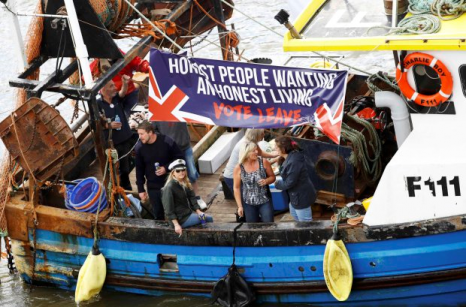
British fishermen tired of taking ‘scraps’ from Brussels are counting down the days to Brexit
They still like a Canadian down in Cornwall. The fishermen here all remember flying the Maple Leaf on their boats in solidarity back in 1995, when Canada and Spain went to battle on the high seas in the Turbot War. Back then, anyone taking on European Union boats accused of overfishing, especially Spanish boats, could count on the support of not just Cornish fishermen, but of the entire British fishing fleet. Canada accused Spanish boats of overfishing turbot using outlawed nets and actually fired shots across the bow of a Spanish trawler called the Estai in international waters off the coast of Newfoundland. Mounties and Fisheries Department officers seized the boat and arrested its captain. >click to read< 14:33

Fishermen cautioned from spreading fake news on social media
KUALA SELANGOR: Over 86,000 registered fishermen in the country have been cautioned against receiving and spreading unverified information on the social media.The Malaysian Fisheries Development Authority (LKIM) chairman, Datuk Seri Dr Irmohizam Ibrahim said the dissemination of false news by fishermen through new social media networks such as Facebook, WhatsApp and blog sites could mar the image of fishermen. Barisan Nasional always ensures the welfare of fishermen is taken care of through government transformation programmes. Thus, they should not be easily influenced by the opposition’s provocations through the social media, especially ahead of the 14th General Election,” said Irmohizam, who is also Kuala Selangor Member of Parliament. – Bernama>click to read<
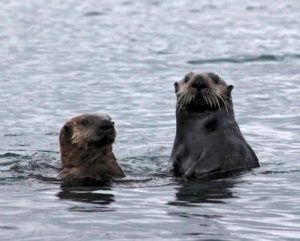
Alaska Senate passes Stedman’s sea otter resolution
The Alaska Senate passed a resolution Wednesday calling on the federal government to take steps to increase the harvest of sea otters in Southeast Alaska. Senate Joint Resolution 13 is sponsored by Sitka Republican senator Bert Stedman. It asks the federal government to transfer management responsibility to the state government or National Marine Fisheries Service, instead of the U.S. Fish and Wildlife Service. It also urges federal agencies to work with the state and other interest groups to produce a management plan for otters, recognizing their impact on crab, clams, urchins and other sea creatures. >click to read<11:07
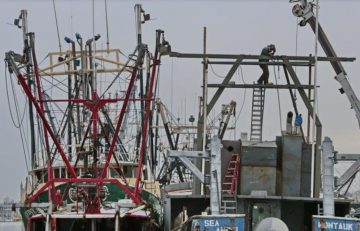
Sector IX vessels make a move to lease quota
Fifty-five vessels have left Sector IX, but they still can’t fish. However, they can lease their groundfish quota. The 55, including four Carlos Rafael vessels subject to forfeiture, were submitted to be included in Sector VII for the 2018-19 fishing season, according to NOAA Sector VII. The move comes after six months of negotiations with NOAA in trying to get an operational plan approved, which would have lifted the groundfishing ban. >click to read<09:17
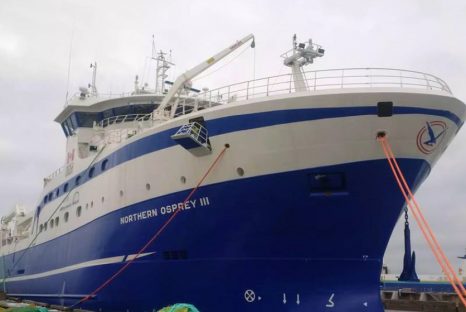
New boat hits the seas for Labrador Fishermen’s Union Shrimp Company
The Labrador Fishermen’s Union Shrimp Company Ltd (LFUSC) has a new shrimp trawler on the waters for 2018. The Northern Osprey III, newly built in 2017, set sail for the company for the first time this February. The vessel is currently fishing shrimp off the shores of Labrador in Shrimp Fishing Area 5. The vessel belongs to MV Osprey Ltd, a company in which the LFUSC has a 50 per cent share. It is replacing the Northern Eagle in MV Osprey’s fleet. The Northern Eagle, built 1996, has been sold. >click to read<20:42
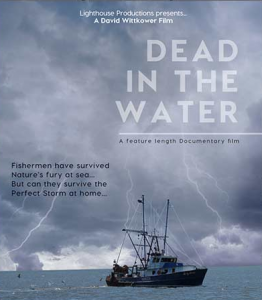
“Dead in the Water” – Documentary on Plight of N.E. Ground Fishermen to be Screened in 4 Maine Towns
Maine residents will have an opportunity soon to witness the devastating impacts of federal regulations on the lives of New England ground fishermen, as seen through the eyes of a documentary filmmaker with a long record of acclaimed work. David Wittkower’s “Dead in the Water” will be shown at four Maine community theaters in April. It will be shown in Kittery, Waterville, Boothbay Harbor. and in Belfast. The 7 p.m. screenings will be followed by a question period and panel discussion featuring local, New England commercial fishermen and the film makers. For location information, >click to read<18:31

The Secret Lives of Commercial Fishermen – Corey Arnold
In the early 2000s, Corey Arnold worked on commercial fishing boats in some of the world’s most dangerous waters, taking photos of the job whenever he had the chance. Soon galleries and magazines were paying attention. In 2008, Arnold shot a story for Outside in Bristol Bay, Alaska, about environmental threats from the proposed Pebble Mine. During that assignment, he discovered a seasonal fishing community at Graveyard Point, near the mouth of the Kvichak River, and established his own salmon operation. (An excellent photo article.) >click to read<16:50
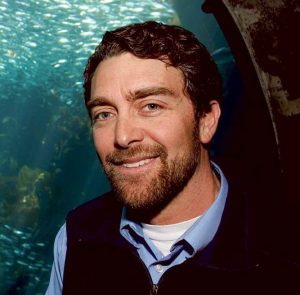
As the Pacific sardine population keeps dropping, the feds come under scrutiny
On April 8, the Pacific Fishery Management Council – a body of appointed officials that regulates fisheries off the West Coast – will be presented with the draft assessment of the sardine population from roughly southern California to Canada. The news it brings is neither good for fishermen nor the local marine ecosystem: The estimated number of sardines in July 2018 – which dictates policy for the 2018-19 fishing year – is 52,065 metric tons, an approximately 97-percent drop from 2006, the most recent peak. What is in dispute: the accuracy of the population assessment, and how we got here.>click to read<15:30

No pipe in the strait: fisheries groups and First Nations to Northern Pulp
They don’t want pulp effluent in the Northumberland Strait. An alliance has been forged among the Gulf Nova Scotia Fleet Planning Board, the Maritime Fishermen’s Union, the Prince Edward Island Fishermen’s Association (PEIFA), the New Brunswick Fisheries Association and Pictou Landing First Nation. Their purpose is to publicly and officially oppose the proposed discharge of Northern Pulp’s effluent into the Northumberland Strait – and to demand a federal environmental assessment into the matter. >click to read<13:51
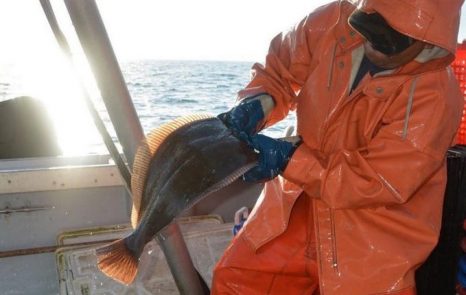
New York’s fish tale is no exaggeration – fluke limits unfair and too low
Wanna hear a fish story? Forget the tale of the 50-pound bluefish, or the yarn about the weeklong battle with a great white that got away. The oldest, most incredible fish story yet told in New York is the one about the federal government’s obscenely unfair quotas on local commercial fluke catches. Those limits, in place for a quarter-century, destroy any notion of fair competition between New York fishers and their peers from other states. >click to read<13:11
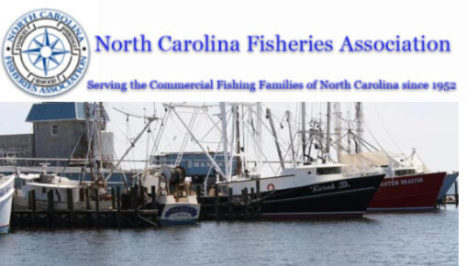
NC Fisheries Association Files Lawsuit Against Marine Fisheries Commission For Lack Of Openness And Transparency
NC Fisheries Association yesterday filed a lawsuit against the Marine Fisheries Commission for violating open meeting laws and an overall lack of transparency and openness. In February 2016, North Carolina State Auditor, Beth Wood, issued findings in connection with an audit of the Division of Marine Fisheries. The audit findings included, “there have been open meetings laws violated by several members of the commission.” Also included in the auditor’s findings were, “four separate email chains dated January 14, 2015,,, >click to read<11:28
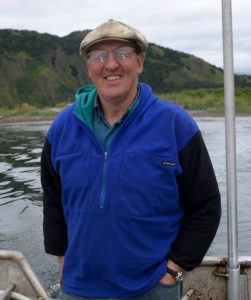
Fields withdraws name from fish board consideration
It was a quick dip into the state fisheries politics pool for Duncan Fields. The Kodiak resident on Wednesday withdrew his name from consideration for the Board of Fisheries, a little less than two weeks after Gov. Bill Walker announced his nomination March 16, according to a press release from Walker’s office. Fields, a commercial salmon fisherman and former member of the North Pacific Fishery Management Council, had become a flashpoint of controversy among sportfishing groups because of his background in commercial fisheries.>click to read<10:47
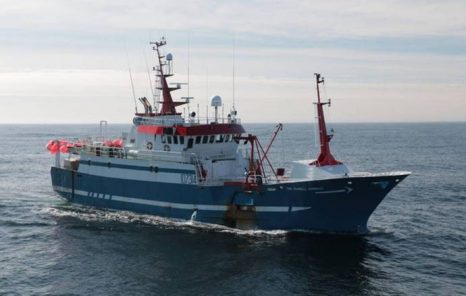
Lobster Fishing Area 41 – Clearwater Seafoods’ offshore lobster monopoly
Wedgeport lobster fisherman Lucien LeBlanc has watched the big blue Clearwater Seafoods trawler Randell Dominaux hauling lobster traps 80 kilometres off the southern tip of Nova Scotia — and looked on with envy. “If a genie popped up and I could get one wish, I’d like to have a zone all to myself. Not just to myself — I’d love to have it for LFA [lobster fishing area] 34. They have a large zone and they only use a miniscule amount of it,” LeBlanc said. The Clearwater trawler is working its side of what’s known as Lobster Fishing Area 41 — a vast area reserved exclusively for Clearwater in a lobster fishery unique in Canada. >click to read<09:10
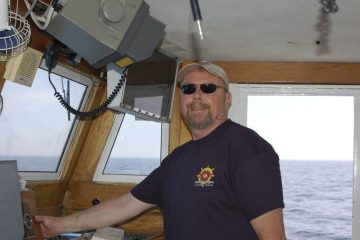
NOAA/NMFS to foot at-sea monitoring costs – Thank You Senator Shaheen!
Timing may not be everything but it sure counts for a lot. Just ask New Hampshire groundfisherman David Goethel. Goethel, who had persevered through cascading years of escalating regulation, slashed fishing quotas, a failed lawsuit and, more recently, the prospect of paying the full cost of at-sea monitoring, was ready to get out of commercial groundfishing. “I had planned to sell my boat this summer,” Goethel said Wednesday, referring to his 44-foot, Hampton, New Hampshire-ported Ellen Diane. “I was done.” Last week, following a full year of working behind the scenes with U.S. Sen. Jeanne Shaheen of New Hampshire, Goethel got the news he and other groundfishermen wanted to hear: >click to read<08:24
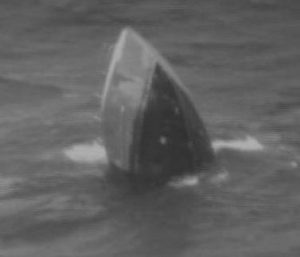
Wife says federal fishery observer on sunken boat ‘traumatized’
The wife of a federal observer who was aboard the fishing vessel that sank off the coast of Hawaii Island over the weekend said Wednesday that her husband, a humorous adventurer and outdoorsman, was shaken by the dramatic event. Steve Dysart was mostly uninjured, though “he said he has some bruises, some bumps, that sort of thing,” Sherri Dysart said. “He said sometimes he’s quite traumatized, but he’s able to come in and out of that. He sounded shaky, but in good spirits and thankful for the other crew members, they all worked as a team.” >click to read<07:31
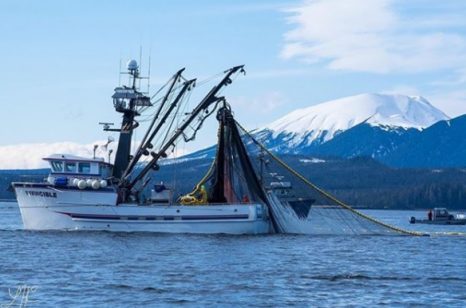
Fleet catches a quarter of herring quota in non-competitive fishery
The Sitka sac roe herring fishery stood down on Tuesday (03-27-18), as the Alaska Department of Fish & Game carried out aerial surveys of Sitka Sound. According to a press release issued at 3:30 pm., weather during the flight was poor with 20 knot winds and snow squalls. No herring were spotted from the air. So far, ADF&G has permitted the fleet to fish twice this week in northern Sitka Sound. The fleet landed approximately 2,400 tons during a five hour opening on Sunday (03-25-18) and 400 tons during a four-and-a-half hour opening on Monday (03-26-18). >click to read< 22:44


































